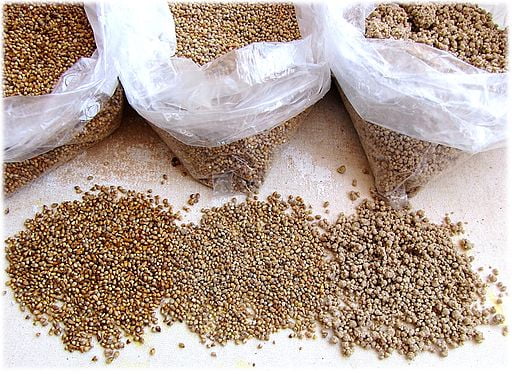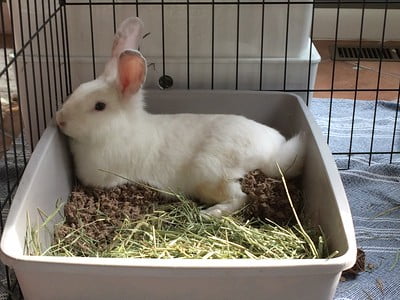Last Updated on March 17, 2023 by Marjon Ramos
The size of your rabbit’s cage should be the biggest you can get, especially if your rabbit is going to spend a lot of time in it. The minimum requirement for a meat rabbit’s cage is 36′′ x 30′′, but it’s also dependent on the size of the rabbit.
Here’s a table to help you decide on what cage size you should buy for your rabbits
| Rabbit’s weight based on breed | Recommended cage size |
|---|---|
| Small breed (1.1–3.5 pounds) | 18″ x 24″ |
| Medium breed (6 to 10 pounds) | 24″ x 30″ |
| Large breed ( 9 and 12 pounds) | 36″ x 30″ |
Another important factor when determining the cage size is the height of the cage. Your rabbit should be able to stand on its hind legs.
Table of Contents
What’s the best cage size if I have two rabbits?

For two rabbits, a multi-level cage is your best option. Multi-level cages have the advantage of keeping the same size as the base while being able to accommodate multiple rabbits.
This is actually what rabbit farms do. They stack up small cages to save space. But if the cage is for an indoor pet, just keep the base large enough.
Is it okay for rabbits to be in small cages?
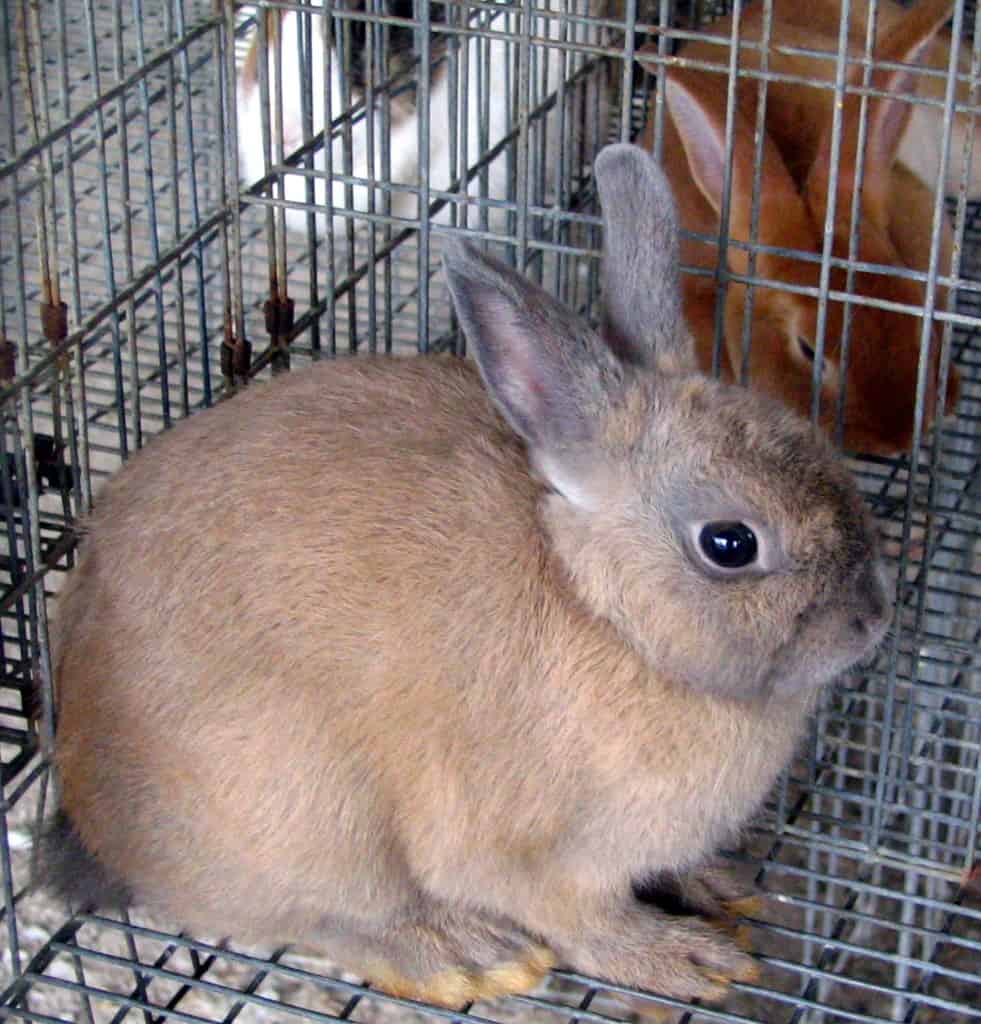
No, it’s not okay for rabbits to be kept in small cages. Rabbits naturally have a lot of energy, and they need to expend it somehow.
Rabbits that are kept in small cages for long periods of time could develop aggressive behaviors. They would likely get frustrated with their current environment.
Also, rabbits kept in small cages could develop health problems like obesity and deformities if they’re kept in small cages when they’re young.
Do rabbits like multi-level cages?
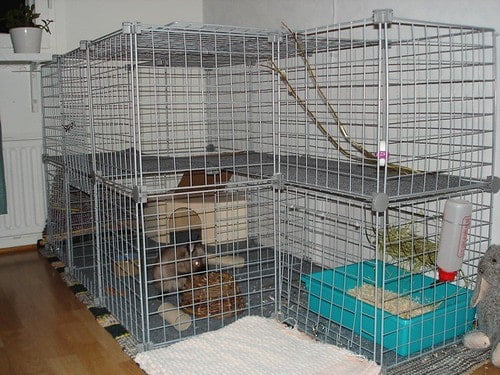
Yes, rabbits like big, multi-level cages because they can run around and play like they would in nature. Just make sure that the elevation is not too high that your rabbit might injure themselves if they fall.
But any standard multi-level cages bought in stores are already designed to be safe for rabbits, so unless you made the cage itself, it shouldn’t be a problem.
Are rabbits happy in cages?
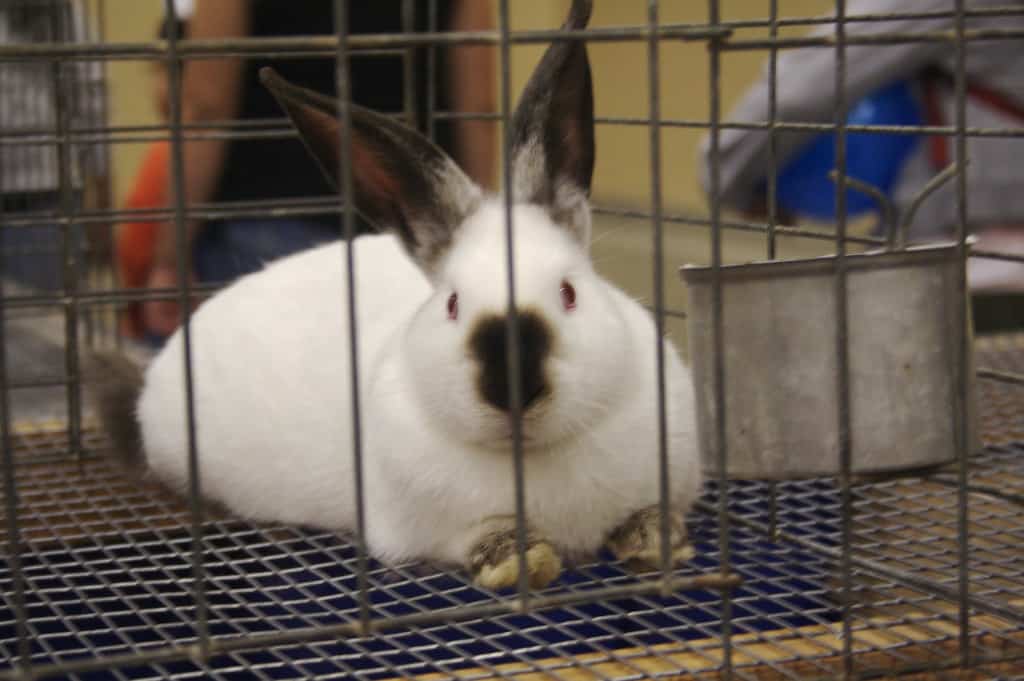
No, rabbits are not happy if they are kept in cages for a long time. Rabbits are natural wanderers and will spend all their time in the wild grazing and exploring.
Being kept in cages causes great stress to rabbits and could lead to aggression and depression. Also, cages that have metal bases could hurt their feet because, unlike dogs and cats, rabbits’ feet are unprotected.
Do indoor rabbits need cages?
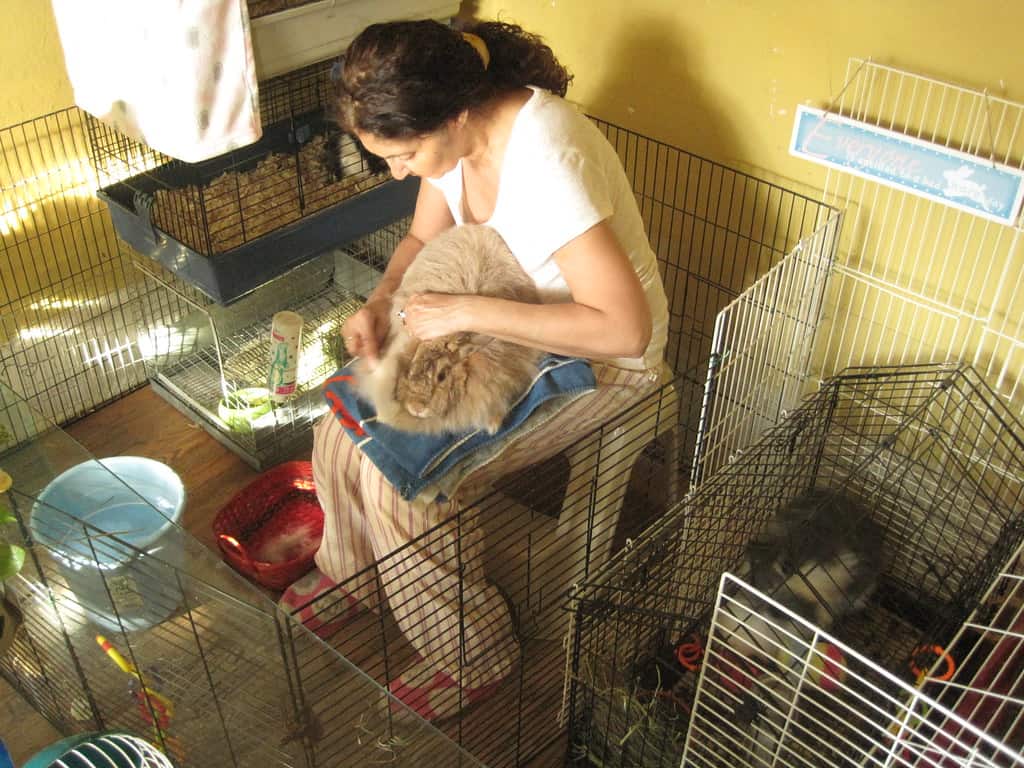
Yes, indoor rabbits should still have a cage. Think of their cage as their own private house. As long as your rabbit is getting enough exercise, keeping them in cages is actually beneficial because it’s their own private space.
A cage is also important for indoor rabbits when their owners are leaving, and you don’t want to leave your rabbit free roaming around the house while you’re gone.
Summary
The rabbit’s cage should preferably be the biggest cage you can get.
The recommended cage size for small breed rabbits (1.1–3.5 pounds) should be 18′′ x 24′′.
While medium-breed rabbits (up to 10 pounds) should have a 24′′ x 30′′.
And finally, large-breed rabbits (11–12 pounds) should have at least a 30′′ x 30′′ cage size.
Cite this article:
Related Articles
- Can Rabbits Eat Asparagus? 9 things you need to know.
- Can Rabbits Eat Tomatoes? What You Need To Know.
- Can Rabbits Eat Watermelon? What You Need To Know.
- Can Rabbits Eat Grapes? What You Need To Know.
- Can Rabbits Eat Broccoli? What You Need To Know.
- Can Rabbits Eat Apples? What You Need To Know.
- Can Rabbits Eat Cabbages? What You Need To Know.
- Can Rabbits Eat Strawberries? What You Need To Know.
- Can Rabbits Eat Bananas? What You Need To Know.
- Can Rabbits Eat Oranges? 9 things you need to know.
- Can Rabbits Eat Blueberries? Here’s Why.
- Can Rabbits Eat Spinach? Your Questions Answered.
- Can Rabbits Eat Cucumbers? Here’s Why.
- Can Rabbits Eat Celery? What you need to know.
- Can Rabbits Eat Radishes: Everything You Need To Know
Sources and further reading
- Buseth, Marit Emilie., and Richard A. Saunders. Rabbit Behaviour, Health, and Care. CABI, 2014.
- Lebas, F. The Rabbit: Husbandry, Health, and Production. Food and Agriculture Organization of the United Nations, 1997.
- Patry, Karen, et al. The Rabbit-Raising Problem Solver: Your Questions Answered about Housing, Feeding, Behavior, Health Care, Breeding, and Kindling. Storey Publishing, 2014.

